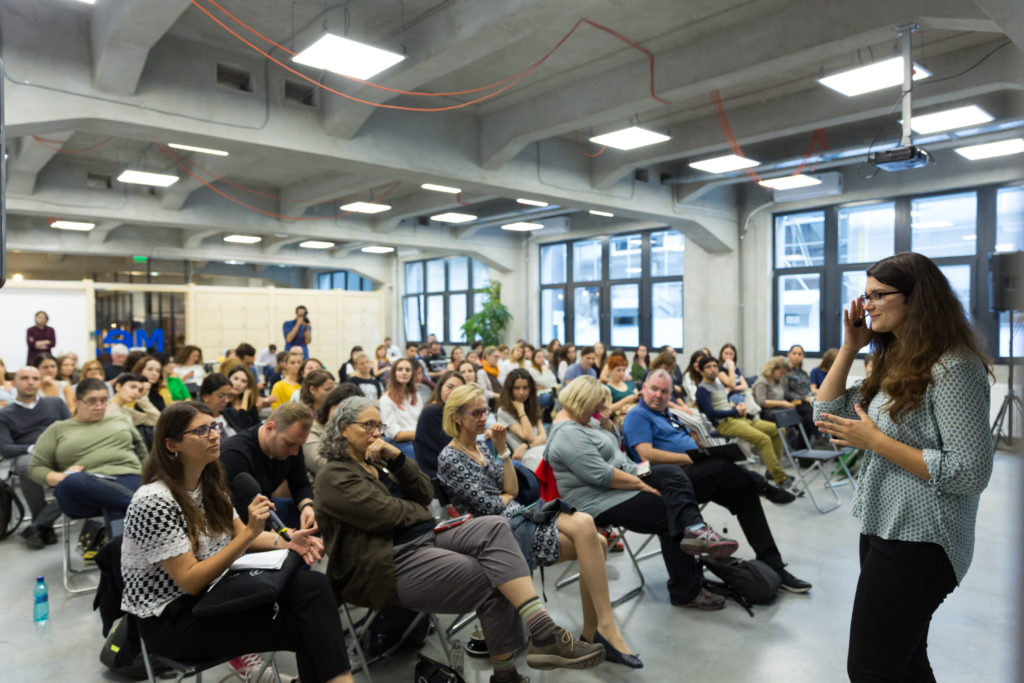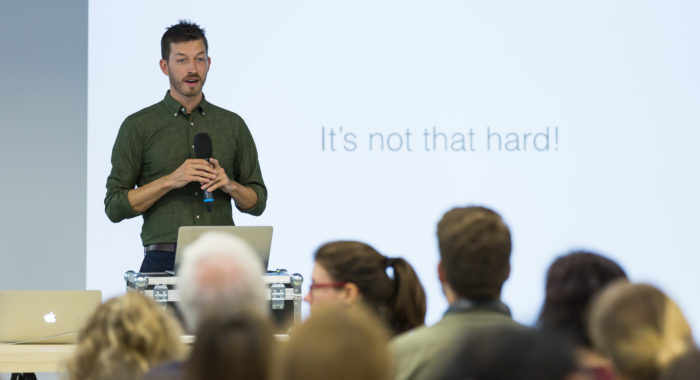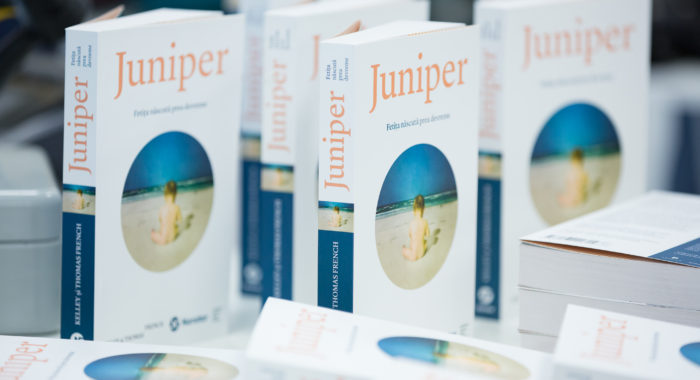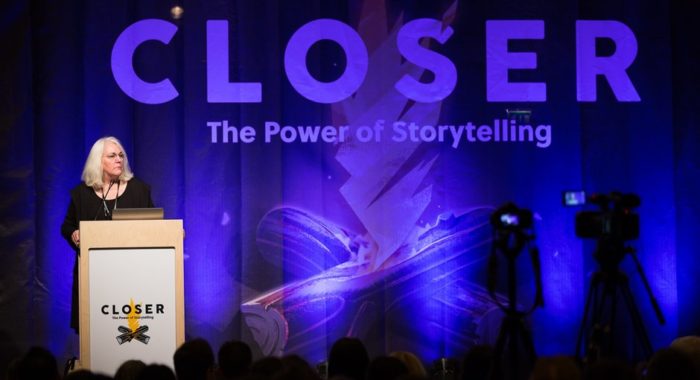Elie started the #Story17 session on October 19 by showing some of her early phone pictures, while describing how she began using her phone more and more.

“I had lived in US my whole life before moving to Lima, Peru. Everything was new and interesting, so I wanted to take a lot of pictures. I started taking pictures with my BlackBerry because it made me feel less intrusive and I could capture natural moments. I realized the power of having this little camera, which helped me capture natural moments, without intruding too much into other people’s lives. (…) I really believe that the best camera you have is the one you have with you.”
Instagram had been around for about a year when Elie created her account. “Having an Instagram account pushed me to take more pictures, because I now had an audience. Later, when I started making more videos, cell phone photography helped me stay connected to the craft that I loved and that I had studied.”
Elie then offered a couple of practical tips for taking better pictures with our phones, and asked participants to put their new skills to practice.
#story17 speaker @eliegardner teaches participants to use the light in the room to take better pictures. pic.twitter.com/OwXabAE6zb
— The Power of Story (@pofstorytelling) October 19, 2017
Be ready. Have your phone charged. Have an external battery pack. Have your phone always with you so you don’t miss important moments. Keep the lenses on your phone clean. It’s a basic thing, but also important.
Zoom with your feet. Sometimes you can’t get any closer, but zoom affects the quality on your image. If you can, take a step or two closer. Don’t say “I can crop it later”. Be braver and step closer to what you’re photographing.
Light. The golden rule is to put the lighting source behind you. But it’s also fun to try the opposite, to point the camera at the sun. See what happens. My phone often sees light different than my eyes. I don’t use flash, I encourage you all to turn it off. Use the light that you have. Use reflective surfaces – white walls, mirrors – , that will bounce the light.
Perspective. The most liked pictures on my Instagram are the ones I post from airplanes, because I show people a different perspective.
Details. Slow down and look at the things around you. Be observant.
Moments are the heart of good journalism. There’s no reason why you can’t take them with your camera. Moments aren’t always dramatic moments, but also subtle moments, like when you lift your tea cup to take a sip.
Find your style. My Instagram is a mix or my journalistic skill and food. Find what works for you and be brave enough to share it. Don’t underestimate the value of your story, even if it’s what you eat and do in a day.
Instagram: Use hashtags that will help you connect with the people in your tribe, and build your community. A good caption or a good thought is important. The location is also important, to know where the picture was taken. Snapseed is the best phone editor you can use. On my Instagram account, I only post photos I took with my phone and I don’t go more than a week without posting.
You can use your smartphone to get closer to other people. Very often we use it as a barrier, but I encourage you to use it to engage with people. That little tool in your hand can do more than take pictures of your coffee or send a text to your mother. It can lead to professional assignments and community building.
In the end, patience and commitment to what you’re doing, like everything in life, will help you get there.
Documenting your everyday life with a cell phone, with Elie Gardner, was part of the #Story17 festival organized during 16 – 22 October. Elie also held a keynote on stories that change your life while you research them at The Power of Storytelling conference – here are some of the takeaways from day 1 and day 2 of the event.


